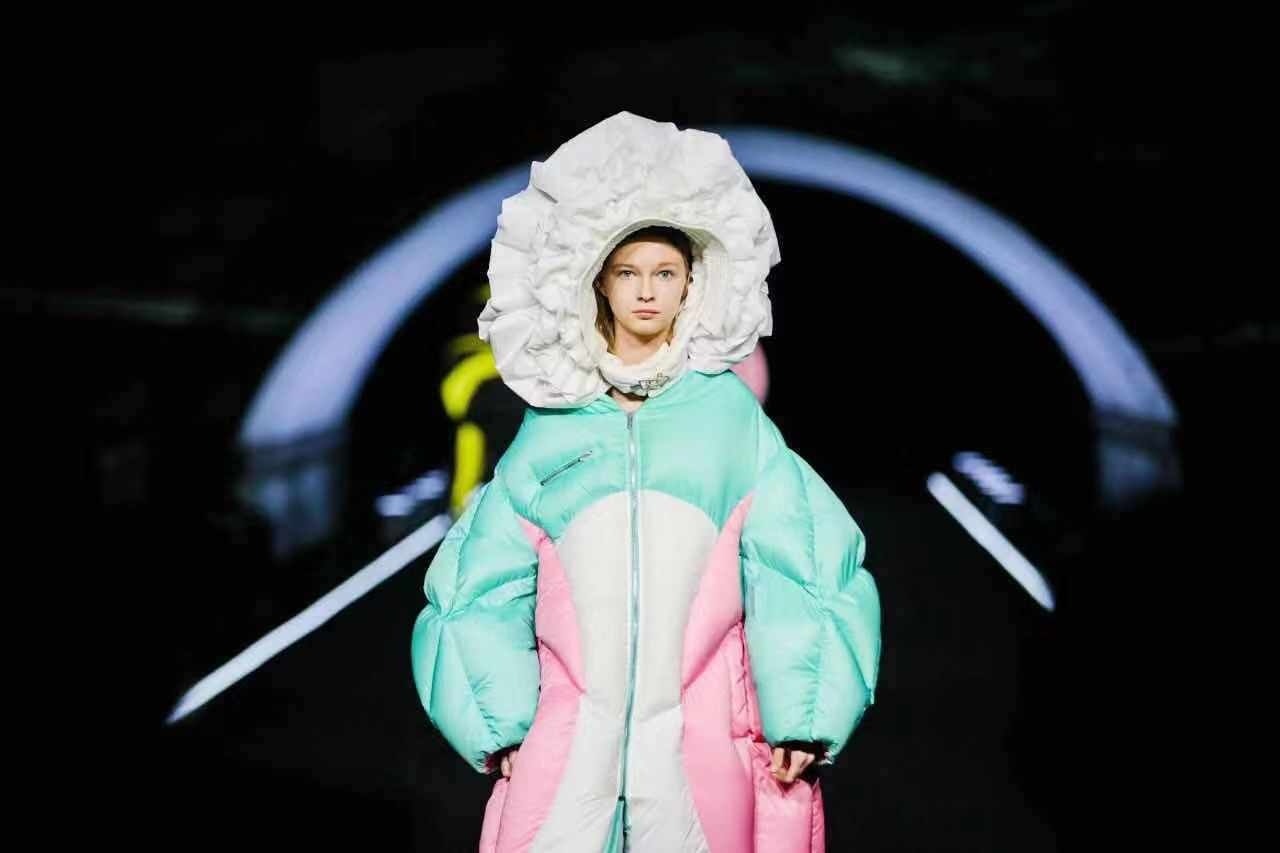“It’s a call out for us to be mindful about the future,” says the co-founder of Wearable Media, a finalist for the 2018 LVMH Innovation Award, about the brand's "spacesuit" that lights up when the moon is at its closest distance to earth. This is the first time this thousand-dollar suit has been put on display, and it marks the brand's debut in China. Meanwhile, two girls wearing HanFu — traditional clothing from the ancient Chinese Han Dynasty — walk past while swiping their phones, while another Han Fu stands on display in the center of the exhibition space. But this one costs around $8430 (60,000 RMB) and was made by six people over a three-month period. This is the Taobao Maker Festival, an annual offline innovation event showcasing the latest, trendiest, and sometimes weirdest products made by Gen-Z vendors on the Chinese C2C site Taobao. It's the fourth year Alibaba has hosted the 14-day event — which has grown to two venues holding over 1,000 different products — in the beautiful city of Hangzhou.
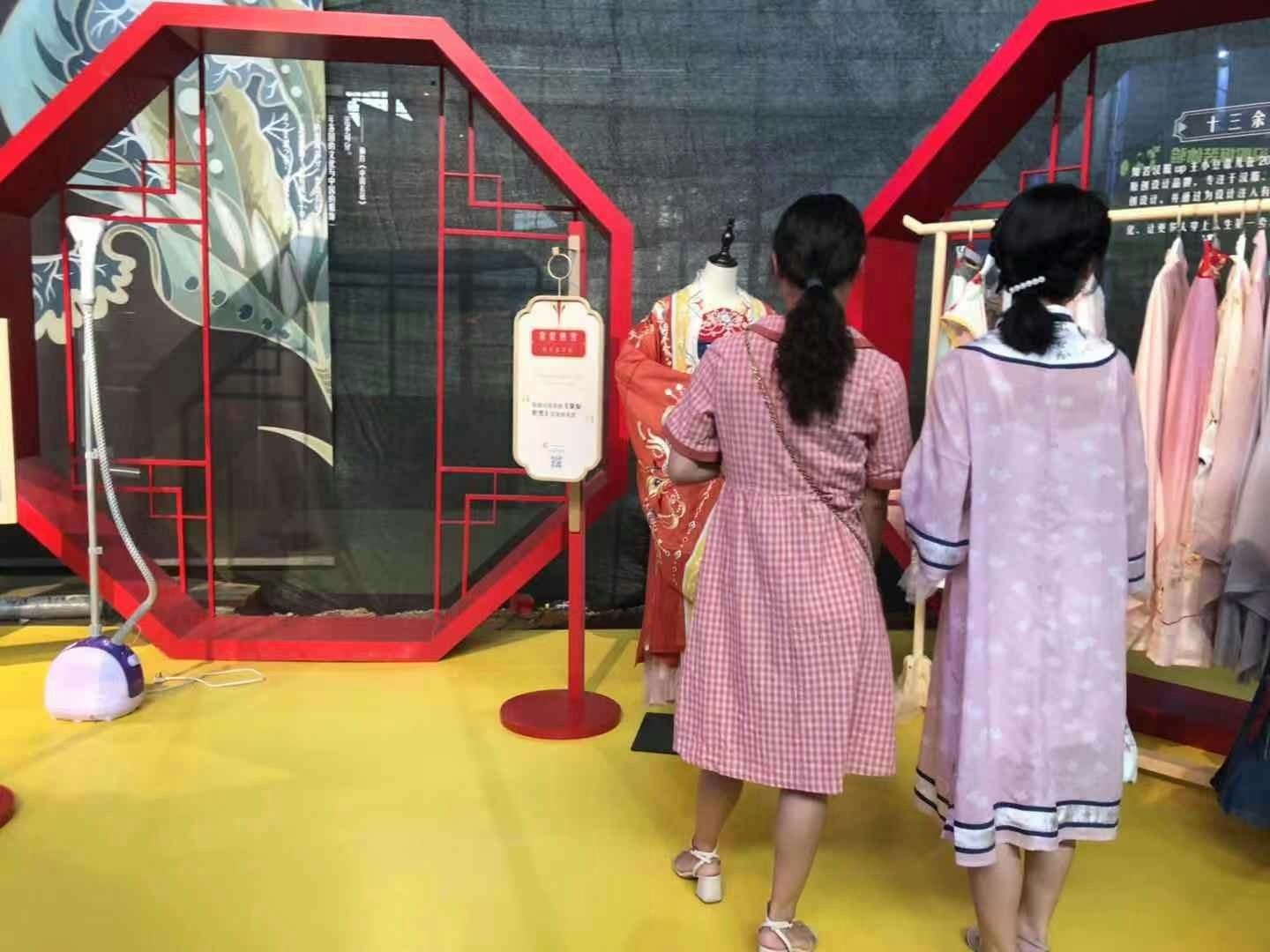
There were no price tags on display and no cash exchanging hands; "experience" was the main reward at the Maker Festival. Visitors were taking selfies, touching different products, and documenting fun activations. Each vendor had a QR code tag in their storefront that let visitors directly access their Taobao stores or place an online order right away. Since visitors can’t purchase items on the spot, the fair allows them time to fully understand the product and share their encounters with their friends. By focusing on experiences instead of sales numbers, the Maker Festival has become a popular content marketing engine for both the Taobao platform and its vendors.
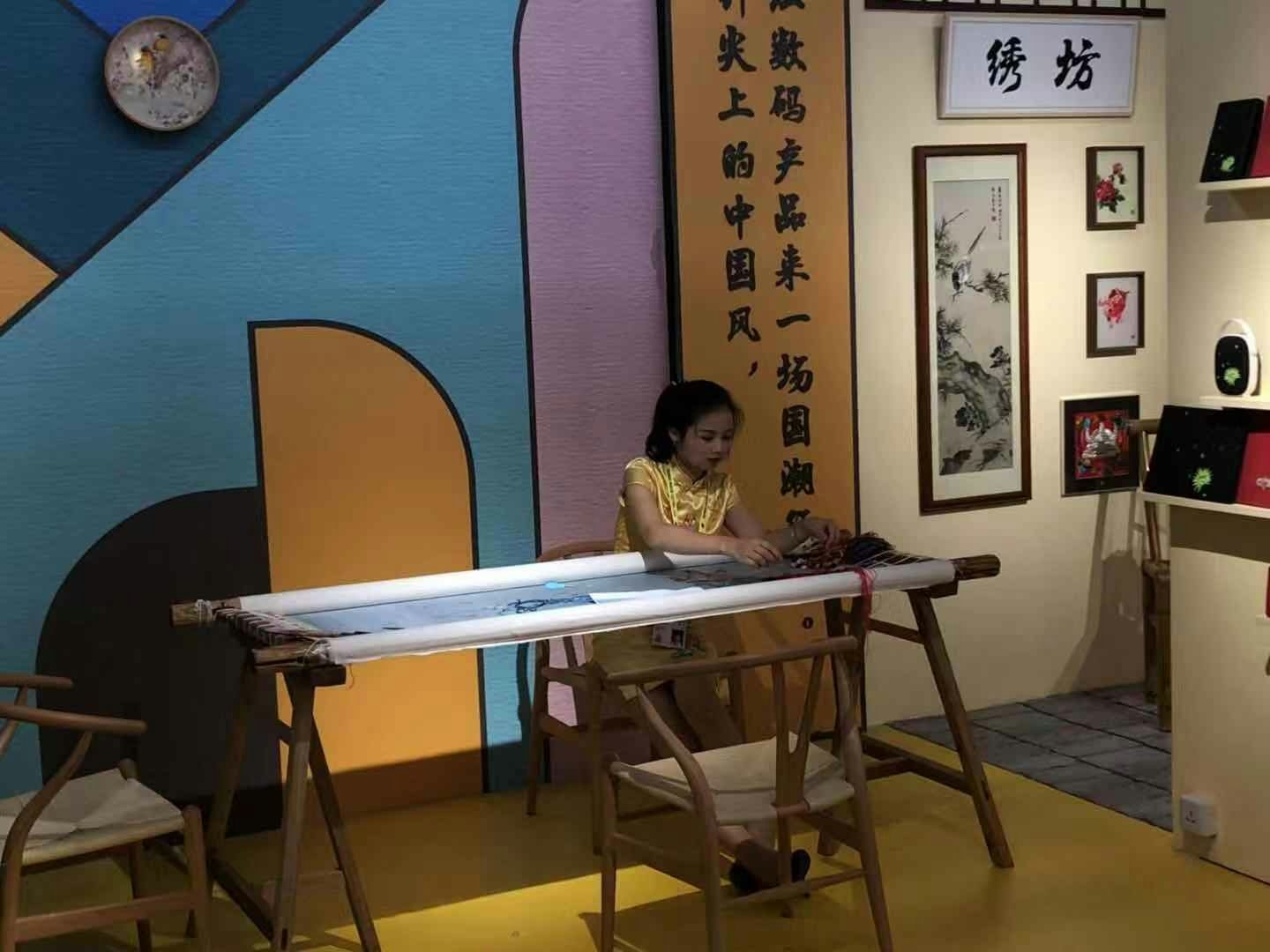
“Transactions are not the focus…therefore, you go there to experience everything," says Chris Tung, Alibaba’s CMO, and the marketing mind behind the festival. "You go there to listen, to talk to the merchant [and ask] 'why are you making such weird stuff?' That’s why I call the whole festival a content marketing machine… the whole Maker Festival is by the young generation and for the young generation.” Understanding Generation Z and it's growing importance in the market is the goal, and Alibaba is positioning itself as the leading platform to connect with this up-and-coming demographic in China.
From Consumer to Creator: How Alibaba Empowers Gen-Z#
The youngest generation in China has become the new growth engine for luxury brands, and a Bain report published earlier this year states that the new generations (millennials and Gen Zers) will deliver 130 percent of future market growth. While luxury brands are chasing after those consumers, the tech giant Alibaba goes a step further by leveraging its C2C social commerce site, Taobao, as a platform to show off young people’s creations (or whatever else they wish to buy). According to a joint study by Taobao and CBNData, 44 percent of the independent designers who run a business on the Taobao Marketplace was born after 1985, while a third was born after 1990.
While other brands may only be pushing Gen Z to buy, Alibaba attempts to create a model which both supports creativity and feeds back into sales.
Alibaba’s Maker Festival focuses on cultivating Gen-Z talents on a bigger platform. One such vendor, with a brand called JingYuTang, started her Taobao business back in 2012 by selling oversized Han Fu. Thanks to Taobao and millennials’ newfound interest in ancient Chinese history, her store experienced a boom this year with revenue growth up to 150 percent annually. Another streetwear brand mining older Chinese styles, 1807RTD, has earned millions with their line, priced between $15-30 (99 to 199 RMB) while bringing in more than 5 million fans on Taobao over just the last few years.
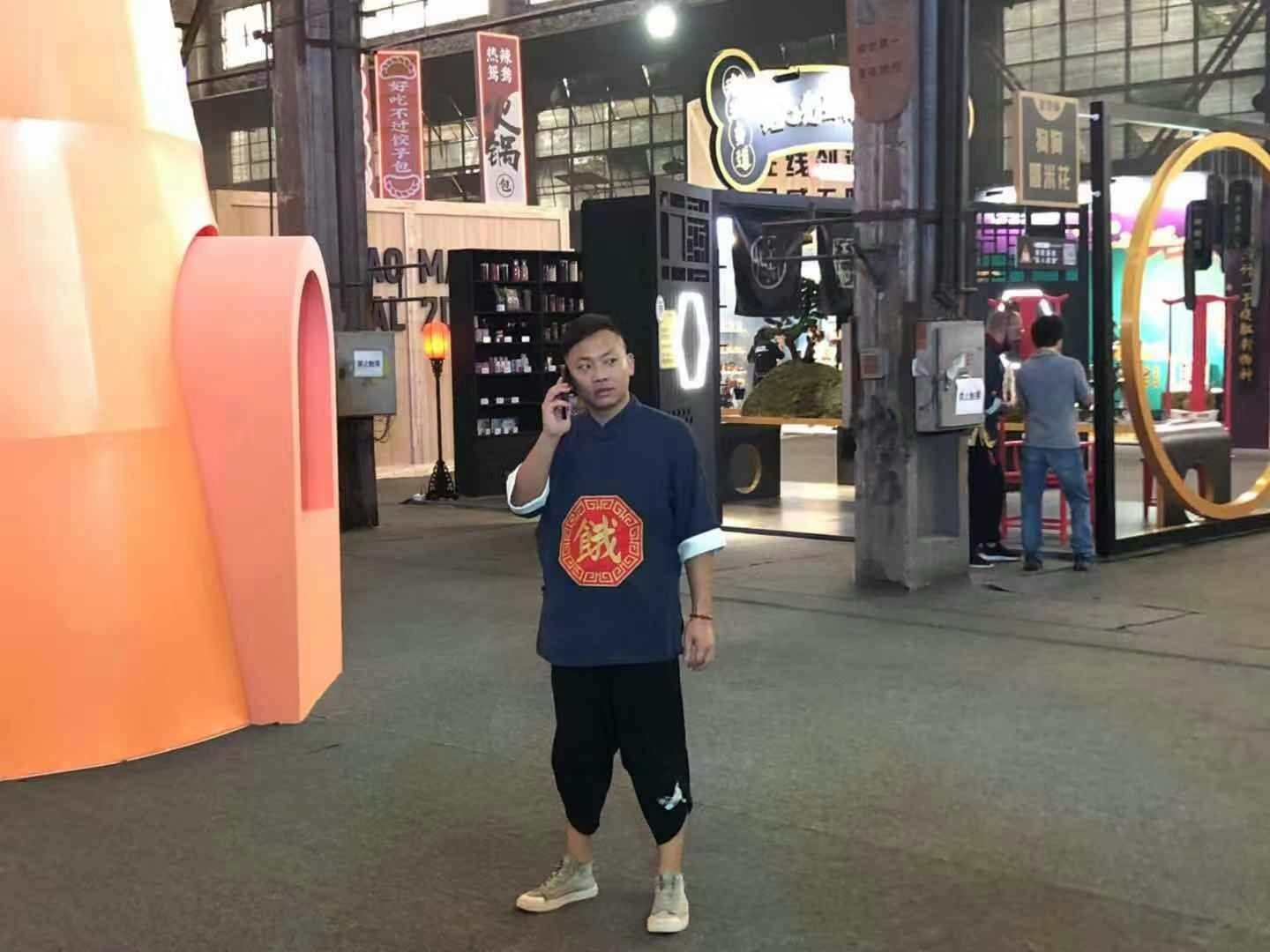
While brands like JinYuTang and 1807RTD both have plans to branch out and build their own offline experiential stores, they see Taobao as a good starting platform. They are just two of the thousands of brands on Taobao, with that number constantly growing.
According to statistics released in July this year, new merchants who joined Taobao over the past three years achieved a total turnover of nearly $70 billion (500 billion RMB). At the end of 2018, nearly 50,000 independent designers were running their businesses on Taobao, most of whom are in their 20s and early 30s. Their creativity resonates well with younger customers who value originality and personality.
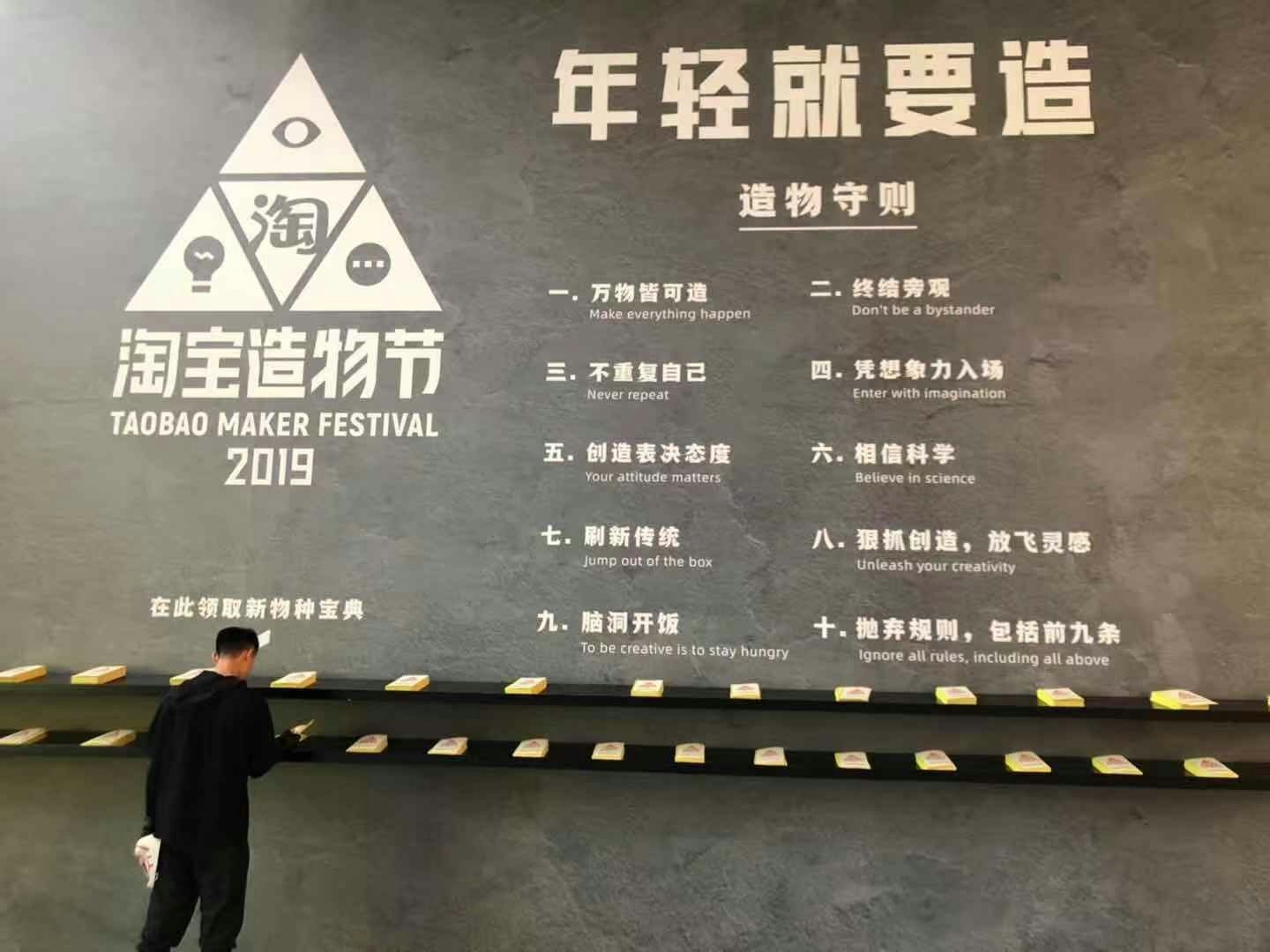
Taobao is different from western C2C channels like eBay since it also acts as an incubator for creative talents. There was a rigorous process in selecting the vendors for the Maker Festival. Taobao had a team pick vendors based on three criteria: design power, product quality, and relevance to young people. After finalizing the vendors, Taobao worked hand-in-hand with them on their pop-up store concepts, making sure their presentations stayed true to the brand's DNA and would captivate visitors. Following a similar set of criteria, Taobao plans to incubate 200,000 merchants on their site to bring in over $700,000 (5 million RMB) in annual sales.
Foreign and Designer Brands Also Want a Slice of China's Gen-Z Audience#
As Taobao attracts more Gen-Z consumers-turned-creators, foreign brands are starting to take notice. On September 12, down the street from the Maker Festival in Hang Zhou, Taobao hosted a Gen-Z themed fashion show that showcased both rising Chinese designers like Chen Peng and Ban Xiaoxue but also Western brands like Chalayan and Koche.
Hussein Chalayan, a world-renowned Turkish designer known as the “godfather of minimalism,” was attracted to the festival by the China market as well as the platform. He brought his latest designs from London Fashion Week to the show, exposing them to Chinese audiences for the first time. “I am very excited by China — our clothes suit people here,” says Chalayan, even though his brand has yet to open any retails stores or a Taobao store. “Our plan is to make it for the younger audiences here… [but] I want to take these steps without losing my identity.” Similarly, the Parisian brand Koche had been planning its China entry even before landing in the fashion show and previously released co-branded collections alongside Chinese brands like Mo & Co., a contemporary Chinese brand that’s already hugely popular with younger crowds in China. The founder, former LVMH designer Christelle Kocher, is now betting on Taobao's 674 million annual active consumers.
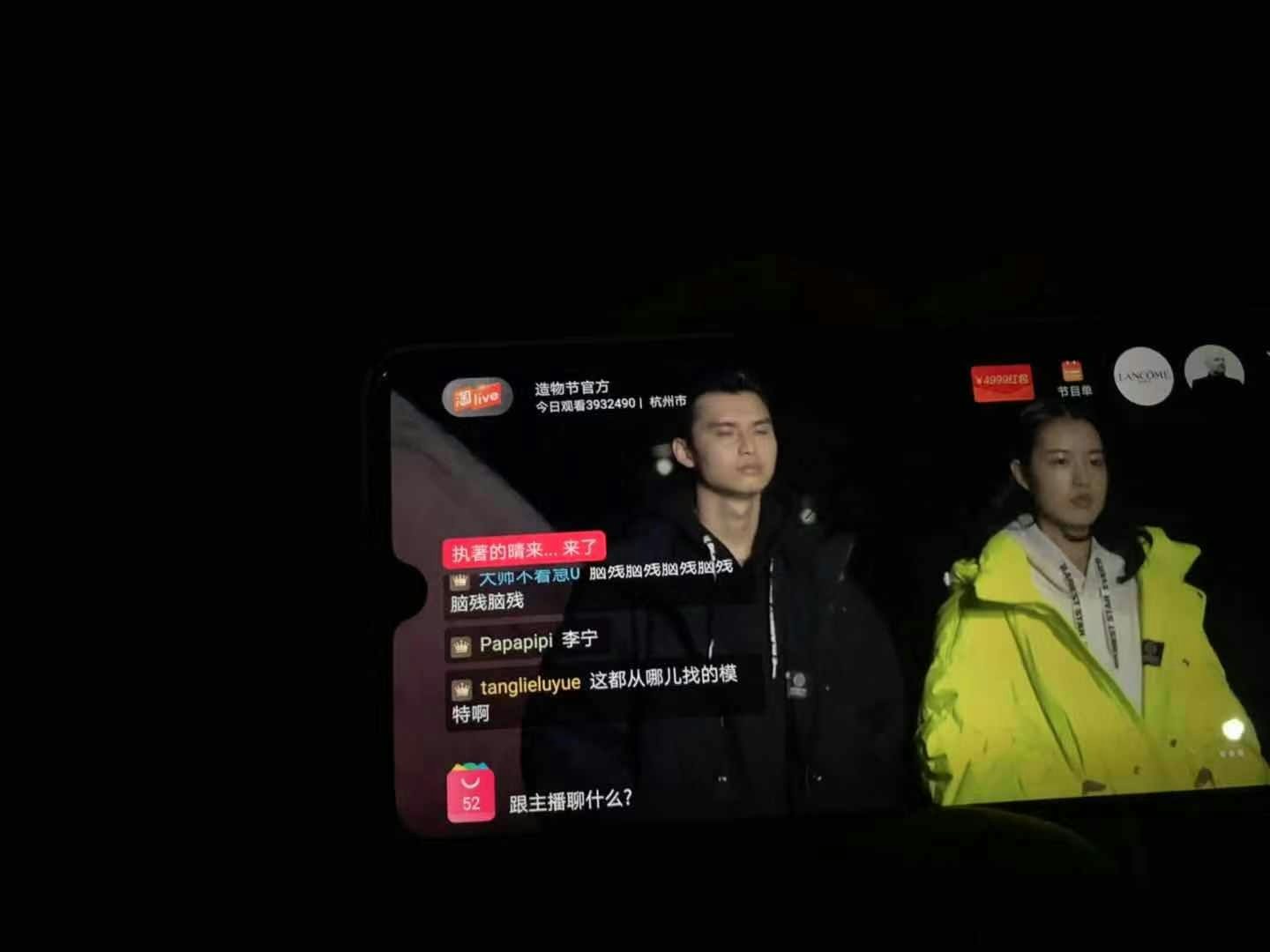
As expected, the show grants Western brands good exposure, as over 4 million people tuned in to the KOL live stream. To cater to Gen-Z’s desire for instant gratification, the show adapted the show to have a “see now, buy now” model, allowing viewers to tune in to the show from the Taobao site and click on runway pieces — ranging from $70 - 3500 (500 to 28,000 RMB) — and buy them. Viewers can comment in real-time, and with upbeat music fueling the glamorous catwalk, the show felt as it was designed to trigger impulse buying.
“We shorten the path from brand-building to transactions,” says Tung, summarizing the shopping behaviors on Taobao. “It’s a full cycle… we help a brand join the Taobao festival, get in the fashion show, and build a brand and presence. When people like it, they buy. [We offer] an efficient path-to-purchase model.”
The range of brands attracted to Alibaba's maker festival, from foreign brands to local brands, is a testament to the power of Alibaba's knowledge of Generation Z. Now, even young Chinese designers who have graduated from schools like London's Saint-Martin or New York City's Parsons are seeing huge opportunities in Alibaba. The avant-garde Chinese designer Chen Peng, who found massive popularity with Hollywood celebrities like Lady Gaga and Rihanna thanks to his oversized puffer jackets, is one such poster child. He returned to China by collaborating with the Alibaba group: joining Tmall’s New York Fashion Week last year and Taobao’s current fashion show. The designer justified his choice of coming back, saying, “In 2015, Moncler asked me to do a cross-over, but I rejected them. If anything, I’d prefer to work with Bosideng [the biggest Chinese puffy jacket maker] rather than Moncler because the Chinese market is the future.”
Alibaba is winning over Chinese Gen Zers' hearts and wallets by recognizing what those consumers want but also by acknowledging China’s Gen-Z talent of the future. As Gen Z prepares to become the future backbone of consumption, mega-platforms must cater to them, and foreign brands are starting to realize that Alibaba is a step ahead of the game.
